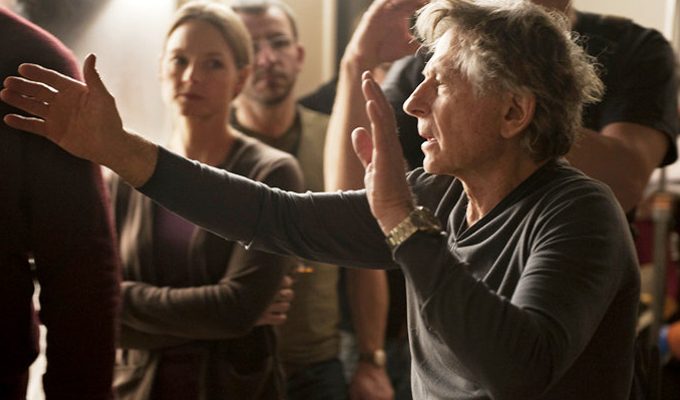 With a career marked by controversy and tragedy, triumphs and disasters, that Roman Polanski has shaken off personal obstacles and professional setbacks is a feat in itself. But that he has become a legendary and influential filmmaker in the process, speaks to his remarkable strength and skill behind the camera no matter how you feel about the man personally.
With a career marked by controversy and tragedy, triumphs and disasters, that Roman Polanski has shaken off personal obstacles and professional setbacks is a feat in itself. But that he has become a legendary and influential filmmaker in the process, speaks to his remarkable strength and skill behind the camera no matter how you feel about the man personally.
Polanski is well known as a craftsman of stylish thrillers, most notably the informal “Apartment Trilogy” of “Repulsion,” “Rosemary’s Baby,” and “The Tenant,” films that trade on nightmarish images, claustrophobic spaces, and creeping paranoia. But looking back over his filmography one is immediately struck by the breadth of genres he has tackled, from the psychological potboilers above, to literary adaptations (“Oliver Twist”), swashbuckling adventure (“Pirates”), World War II drama (“The Pianist”) and sizzling noir (“Chinatown”). Granted, results have certainly be mixed — he seems to informally follow one great movie with a middling or downright terrible effort — but few directors share the kind of ongoing curiosity and sense of personal challenge that Polanski seems to embrace.
But one cannot comment on the erratic nature of his career without mentioning his tumultuous, tragedy-strewn personal life. As a child Polanski survived the Holocaust that claimed the life of his mother; in 1969 his pregnant wife Sharon Tate was murdered by followers of cult leader Charles Manson; and in 1977, having been arrested for the sexual abuse of a 13-year-old girl, Polanski pleaded guilty but fled the country to avoid sentencing. Since he hasn’t been able to set foot in the United States for the past few decades, it lends the movies that are partially set here, like his recent, atmospheric thriller “The Ghost Writer,” an air of surrealism and dreamy detachment; it’s the remembrance of the United States, instead of recent firsthand knowledge.
But we’ll leave it to history to weigh in on Sharon Tate, his legal troubles, his exile from the U.S. and how all of that will affect his legacy: no matter what, we will always have his films. At their best, they display a wit, an edge and an elusive, indefinable atmosphere that is distinctly his own, combining a rather European preference for ineffable style with an entertainer’s flair for showmanship. This weekend, the slight, but diverting “Carnage” brings another display of the director’s cracked sense of humor and relentless energy, and it gives us a welcome opportunity to look back on his body of work, spanning his career from top to bottom.
 “Knife in the Water” (1962)
“Knife in the Water” (1962)
“Nóz w Wodzie,” or “Knife in the Water” when translated from the Polish, marked Polanski’s feature debut, made at the age of 27 after a string of shorts, and it’s hard to think of a more assured first film. Like much of his early work, and indeed latest film “Carnage,” it’s a taut drama with a limited cast and an enclosed location; Andrzej (Leon Niemczyk) and Krystyna (Jolanta Umecka) are a married couple, one who are clearly having some issues under their facade of middle-class happiness. En route to go sailing on their yacht, they pick up a hitchhiker (Zygmunt Malanowicz, whose lines were actually dubbed by Polanski, who had originally wanted to play the role himself), and head out onto the water together, where the two men butt heads, alpha-male style, for the attentions of the woman. Working from a screenplay without an ounce of fat on it, Polanski shows from the first that he knows how to wring the maximum tension from such a situation, and unlike the later “Dead Calm,” a crass, if enjoyable, homage/rip-off of the 1962 film, doesn’t need to resort to outright murderousness to keep it as taut as a snare drum. Instead it’s people’s insecurities, flirtations and fears that makes this a gripping thriller. And Polanski is already firmly in command of his craft, using a then-relatively bold hand-held approach to stop the film feeling stage-bound, and cutting out the jazzy, jarring score when needed for maximum tension. He might have gone on to greater things, but he couldn’t have asked for a better start. [A]
 “Repulsion” (1965)
“Repulsion” (1965)
Often cited as a twisted inversion of Alfred Hitchcock‘s “Psycho,” “Repulsion” is an uncanny little shocker and the first film in Polanski’s so-called “apartment trilogy” (the later films being “The Tenant” and “Rosemary’s Baby“), which many point to as the most crucial cluster in the filmmaker’s oeuvre. Here, the young, virginal Carole (played, with saucer eyes and sincerity by a breathtaking Catherine Deneuve) is a Belgian immigrant who works at a London nail salon, but slowly becomes more isolated and alone, to the point of becoming unhinged. Polanski, using stark black-and-white photography a half-decade after “Psycho,” does a wonderful job of placing us in Deneuve’s psychological state, alternating calm moments with fits of paranoia, rage, fear, and outright hallucination (like the iconic sequence when the walls of her cramped apartment grow arms that grab at her). And if that doesn’t sway you, maybe the original tagline from the grabby poster will: “The nightmare world of a virgin’s dreams becomes the screen’s shocking reality!” (Exclamation point theirs.) The film somehow found its way into the public domain dumping ground and for a while you could only see it via dodgy DVD transfers, but thankfully those Criterion came through and rescued it. Their presentation (also available on Blu-ray) is profound and jaw-dropping: the horror is scarier because, like Deneuve’s character, it’s so damn beautiful. [A-]

